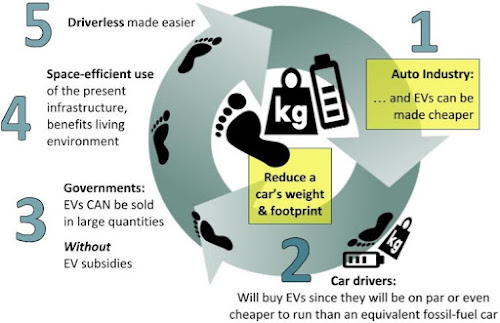They’re set to phaseout for Tesla in 2019, with GM close behind, but could Congress extend or eliminate them? Federal tax credits of $7,500 were enacted in 2010 to help spur sales of electric vehicles, which was a priority for the Obama administration. Unfortunately they’re not permanent, and are scheduled to phase out during the...
[WPURI="https://teslamotorsclub.com/blog/2018/11/07/whats-next-federal-ev-tax-credits/"]READ FULL ARTICLE[/WPURI]
[WPURI="https://teslamotorsclub.com/blog/2018/11/07/whats-next-federal-ev-tax-credits/"]READ FULL ARTICLE[/WPURI]



